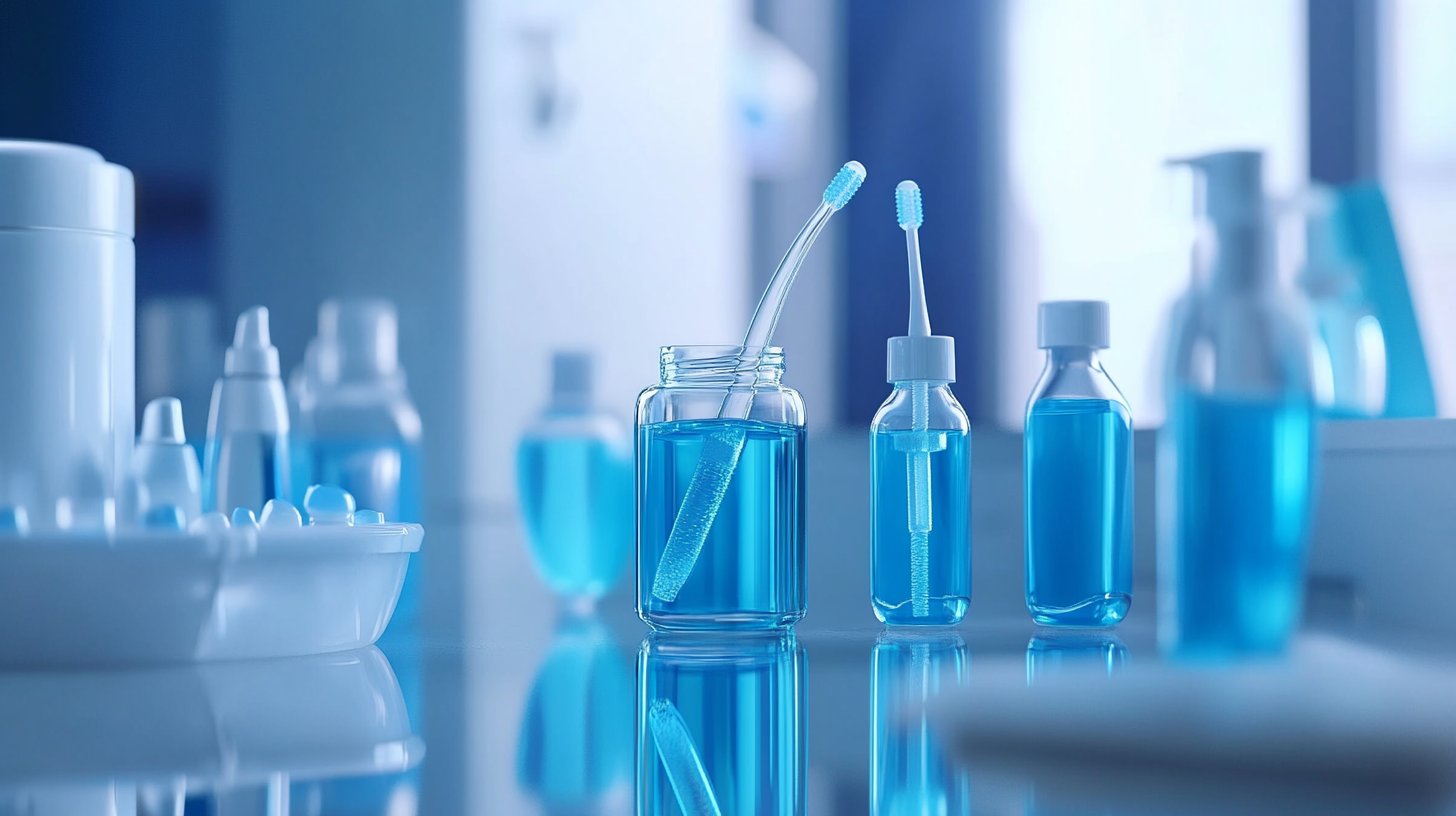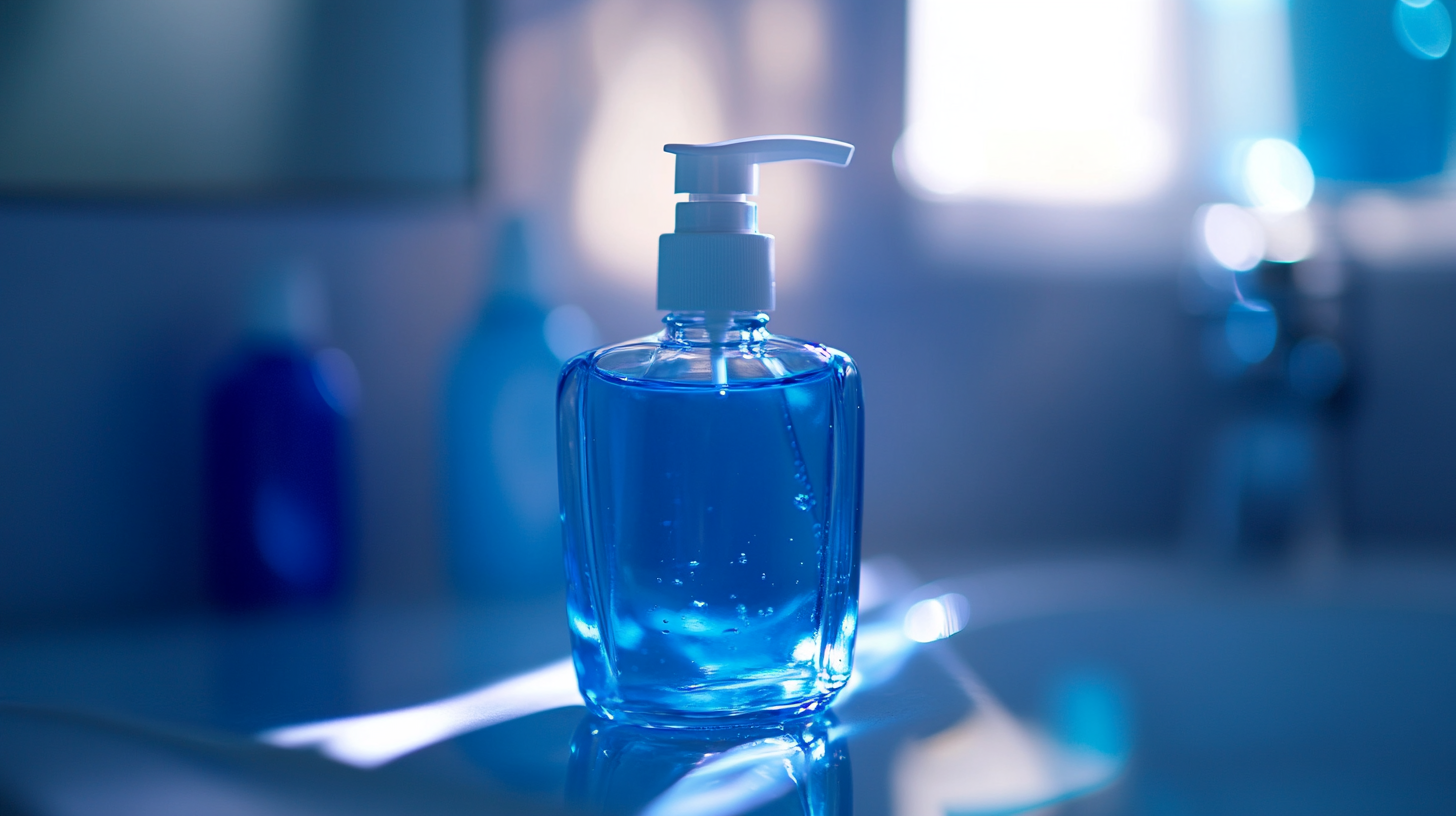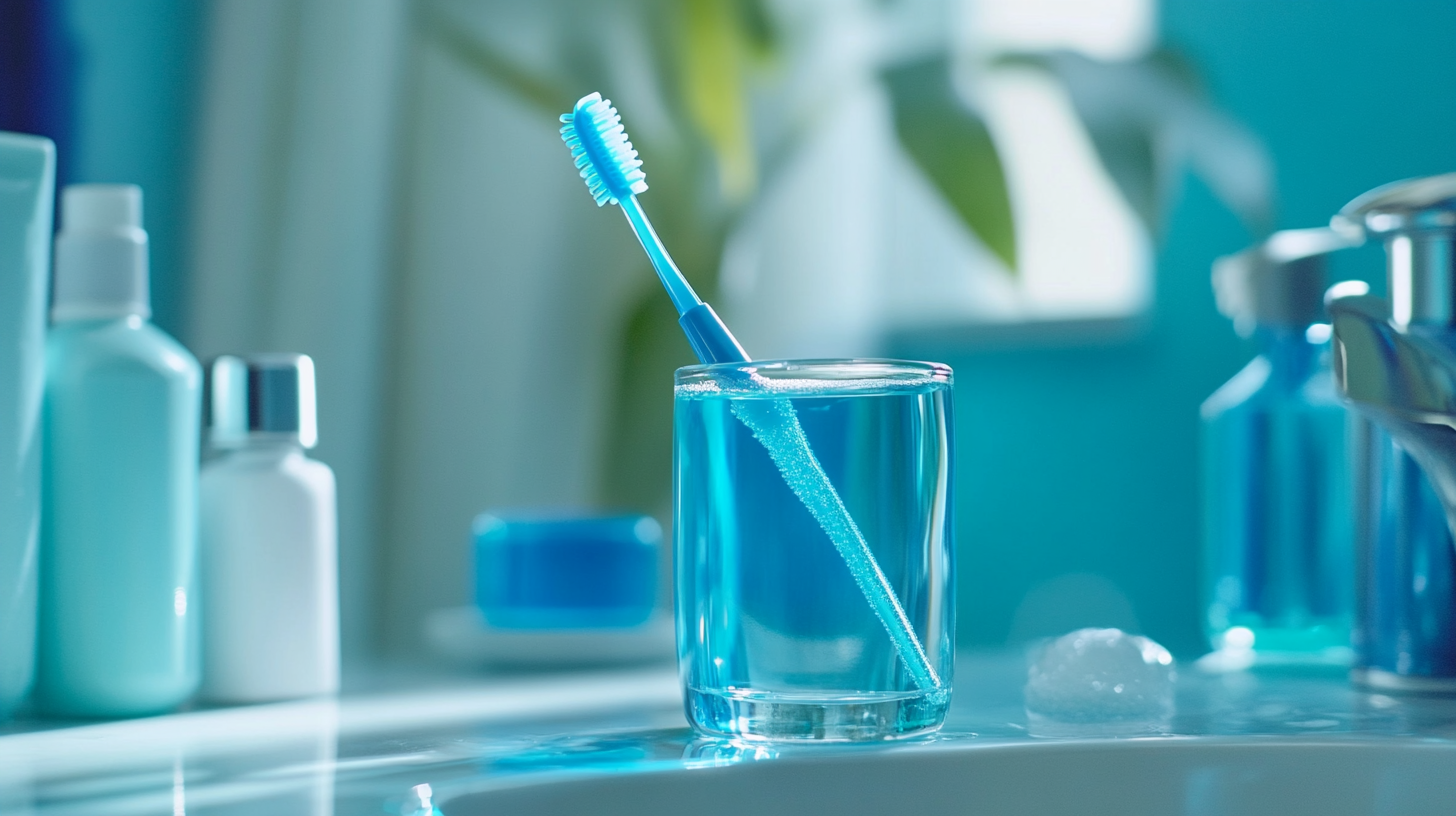Exploring the Advantages of Best Antibacterial Mouthwash for Optimal Oral Health
Maintaining optimal oral health is crucial, as studies indicate that around 75% of adults suffer from some form of periodontal disease, which can lead to tooth loss and other serious health issues. One effective method for combatting harmful bacteria in the mouth is the use of Antibacterial Mouthwash. Research shows that incorporating an antibacterial mouthwash into your daily dental hygiene routine can significantly reduce plaque accumulation by up to 45% and lower the risk of gingivitis by approximately 28%. This blog will explore the advantages of using the best antibacterial mouthwash, highlighting its efficacy in promoting oral health and preventing dental decay. By understanding the benefits and scientific backing behind these products, individuals can make informed choices to enhance their oral hygiene practices and maintain a healthier smile.

The Growing Demand for Antibacterial Mouthwash in Oral Care Market 2025
The oral care market is witnessing a remarkable shift towards antibacterial mouthwashes, driven by the increasing consumer awareness of oral hygiene's impact on overall health. As research continues to highlight the link between oral health and systemic conditions, more people are seeking effective solutions to combat harmful bacteria in the mouth. Antibacterial mouthwashes are gaining traction because they not only help control bad breath but also contribute to reducing plaque buildup and gum disease, making them a vital component of daily oral care routines.
As we head towards 2025, the demand for antibacterial mouthwash is expected to grow significantly. Factors such as rising incidences of oral diseases, along with changing lifestyles and dietary habits, underscore the need for enhanced protective measures in oral hygiene.
Furthermore, advancements in formulation technologies are making these products more effective and appealing to consumers. The effects of a healthy mouth extend beyond fresh breath; they include improved general well-being, serving as a key driver that propels the market growth of antibacterial mouthwashes. This trend reflects an increasing acknowledgment of the importance of preventive care in oral health, as more individuals prioritize their hygiene routines.
Key Ingredients That Enhance the Effectiveness of Antibacterial Mouthwash
When it comes to maintaining optimal oral health, antibacterial mouthwashes play a crucial role. Key ingredients in these mouthwashes, such as cetylpyridinium chloride, chlorhexidine, and essential oils, can significantly enhance their effectiveness against harmful bacteria. Cetylpyridinium chloride is a quaternary ammonium compound that disrupts the cell membranes of bacteria, effectively reducing plaque and gingivitis. This powerful agent not only fights existing bacteria but also prevents their development.
Another noteworthy ingredient is chlorhexidine, which is often recommended for individuals with periodontal disease. Its prolonged antimicrobial action helps to sustain a healthier oral environment and is particularly effective in controlling oral biofilm. Essential oils, derived from natural plants, offer additional benefits by providing both antimicrobial and anti-inflammatory properties. Ingredients like tea tree oil and eucalyptus not only fight bacteria but also freshen breath and soothe gum inflammation. Incorporating mouthwash containing these key ingredients into your daily routine can lead to a significant improvement in your overall oral health.
Exploring the Advantages of Best Antibacterial Mouthwash for Optimal Oral Health
| Key Ingredients | Benefits | Mechanism of Action | Recommended Usage |
|---|---|---|---|
| Chlorhexidine | Reduces plaque and gingivitis | Inhibits bacterial growth | Use twice daily after brushing |
| Cetylpyridinium Chloride (CPC) | Freshens breath and reduces plaque | Disrupts bacterial cell membranes | Use daily for best results |
| Essential Oils (e.g., eucalyptol, menthol) | Reduces plaque and gingivitis | Antimicrobial properties | Use in a diluted form if necessary |
| Fluoride | Strengthens enamel and protects against decay | Remineralizes tooth enamel | Use once daily, preferably before bed |
| Sodium Bicarbonate | Neutralizes acids and freshens breath | Balances pH levels in the mouth | Use as needed |
Comparing Popular Antibacterial Mouthwash Brands: Benefits and Drawbacks
Antibacterial mouthwashes play a crucial role in maintaining optimal oral health by significantly reducing harmful bacteria and preventing common dental problems. Recent reports indicate that using an effective mouthwash can decrease plaque buildup by up to 30% when combined with regular brushing and flossing. In addition, these mouthwashes can help fight gingivitis, with studies showing that participants who used antibacterial options experienced a 20% greater reduction in gum inflammation over 12 weeks compared to those who used non-antibacterial alternatives.
When comparing popular antibacterial mouthwash brands, it’s essential to consider both their benefits and drawbacks. Many formulations contain active ingredients like chlorhexidine or cetylpyridinium chloride, which have been proven to combat bacteria effectively. However, some users may experience side effects such as a temporary alteration in taste or increased tooth staining over prolonged use. Consequently, while the antibacterial mouthwash can enhance oral hygiene and freshen breath, individuals should weigh the benefits against potential drawbacks to select the best option for their unique needs.

How to Select the Right Antibacterial Mouthwash for Your Oral Health Needs
When selecting the right antibacterial mouthwash for your oral health needs, it's crucial to consider several key factors. According to the American Dental Association (ADA), mouthwashes containing active ingredients like chlorhexidine or cetylpyridinium chloride can effectively reduce plaque and gingivitis. It's essential to read labels and choose products that have earned the ADA Seal of Acceptance, which ensures the mouthwash has been tested for safety and efficacy.
**Tip**: Look for mouthwashes with fluoride if you're focused on cavity prevention. Fluoride helps remineralize tooth enamel, reducing the risk of decay while still providing antibacterial benefits.

Another consideration is your specific oral health requirements. For instance, if you're prone to bad breath, a mouthwash with a strong flavor or additional antimicrobial ingredients may be beneficial. Research indicates that approximately 50% of Americans experience chronic halitosis, making breath-freshening properties a significant factor for many.
**Tip**: For users with sensitive gums, opt for alcohol-free options to minimize irritation. Alcohol can lead to dry mouth, which might exacerbate oral health issues rather than alleviate them.
Future Trends in Antibacterial Mouthwash Development and Consumer Preferences
The future of antibacterial mouthwash development is set to be influenced by evolving consumer preferences and emerging market trends. As oral health awareness grows, consumers are increasingly seeking products that not only combat bad breath but also promote overall oral health. The global mouthwash market is projected to expand significantly, driven by innovations in formulations and natural ingredients. For instance, the surge in demand for natural and alcohol-free mouthwash options indicates a shift towards healthier alternatives.
One key tip for consumers is to choose mouthwash that contains effective antibacterial properties while being gentle on the oral mucosa. It's also important to look for mouthwashes with natural ingredients, like mint oils, which not only provide a refreshing taste but also offer additional oral health benefits. Additionally, adaptive formulations that cater to specific cultural preferences, such as those popular in regions where alcohol is restricted, can enhance consumer satisfaction and broaden market reach.
As the oral care market anticipates reaching USD 63.3 billion by 2032, brands will need to focus on sustainability in packaging and production. Eco-friendly options are becoming a priority for many conscious consumers. Thus, opting for mouthwash with minimal environmental impact should be a consideration for anyone looking to enhance their oral hygiene routine responsibly.
Exploring the Advantages of Best Antibacterial Mouthwash for Optimal Oral Health
This chart illustrates the various factors influencing consumer preferences in antibacterial mouthwash. The data shows that efficacy stands out as the most important aspect, followed by taste, price, packaging, and the presence of natural ingredients.
